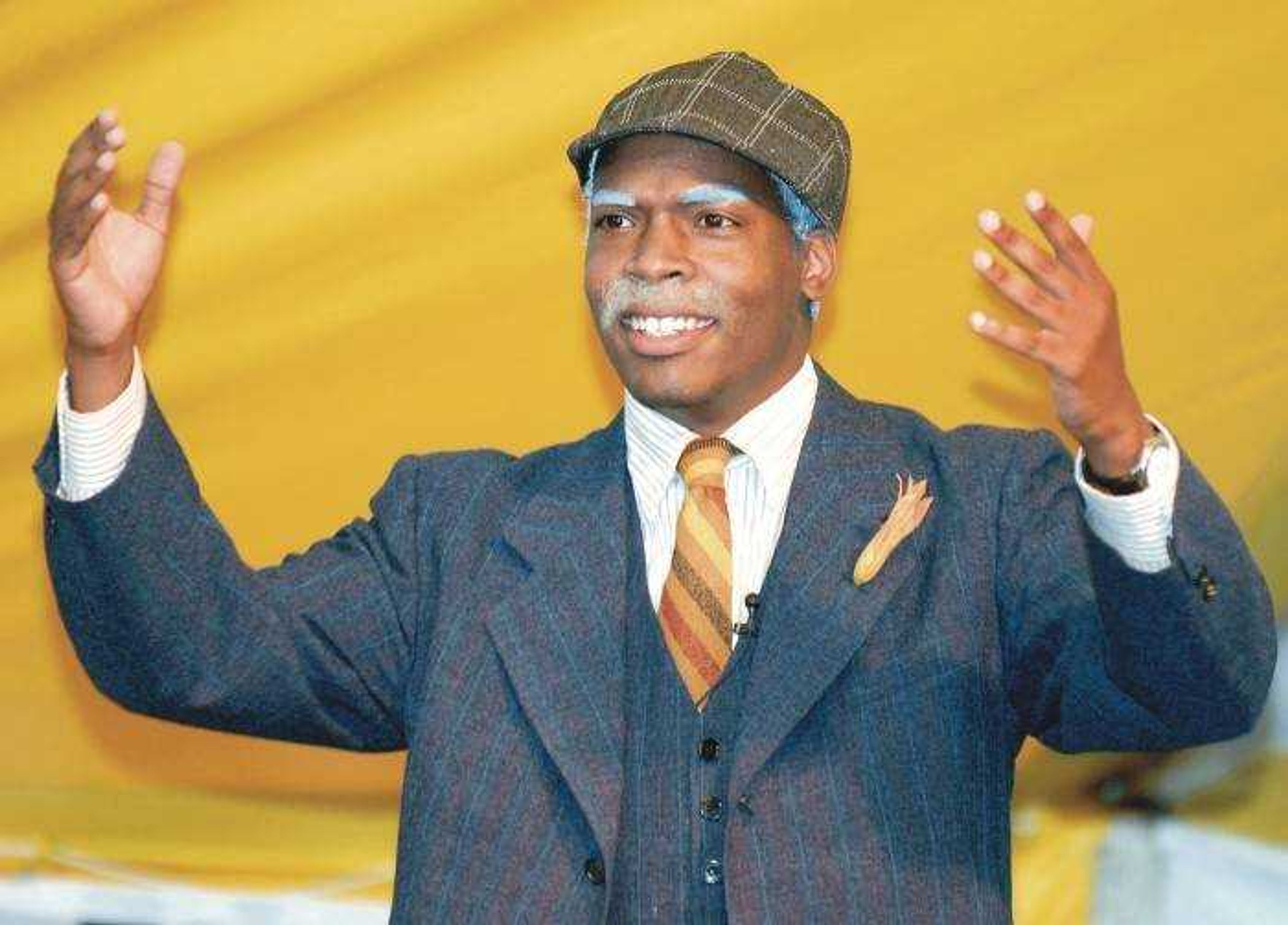Organizers hope for another Chautauqua in '07
The Chautauqua festival closed Saturday night at the Osage Community Centre with an energetic speech by George Washington Carver. Of course, it wasn't actually Carver himself, who died in 1943, but performer Paxton Williams, who portrayed the agricultural legend...
~ The road manager said attendance was good, considering the festival hadn't been in Cape Girardeau since 1924.
The Chautauqua festival closed Saturday night at the Osage Community Centre with an energetic speech by George Washington Carver. Of course, it wasn't actually Carver himself, who died in 1943, but performer Paxton Williams, who portrayed the agricultural legend.
"The primary ideal in all of my work ... was that I always thought to improve the health and living conditions of the Southern farmer," Williams said as Carver. "The farmers I saw in Alabama lived in what I call 'the low lands of sorrow,' but could have lived on 'the high ground of hope' had they been able to take advantage of all that is around us."
Chautauqua, the Missouri Humanities Council's traveling history festival, began Monday in Cape Girardeau. This year, the festival hit Maryville, Mo., and Kirkwood, Mo., and finished in Cape Girardeau. The local festival exceeded the expectations of organizers, who already hope the council chooses Cape Girardeau for Chautauqua next year.
During the weeklong event, five performers portrayed mostly well-known historical figures, with one performance each night. The figures were Theodore Roosevelt, John James Audubon, Mary Elizabeth Lease, Fred Harvey and Carver.
Each night began with local music entertainment before the figures' speeches. On Saturday night, Williams spoke about Carver's life and his work. Carver was best known for creating more than 300 uses for the peanut and more than 150 uses for the sweet potato. He was also the first black to attend Iowa State University (then Iowa State Agricultural College) and the institution's first black faculty member.
"The purpose of the Chautauqua is to educate, inspire and entertain," Williams said. "And I hope that, with Dr. Carver's story, I am able to do that."
Kathryn Ballard, who has been road manager of Chautauqua for eight years, said attendance in Cape Girardeau was lower than that of the Kirkwood and Maryville events. But she said the attendance was good considering it was the first time Chautauqua was performed in Cape Girardeau since 1924.
"The tradition is that after the first year, when you are educating people to what Chautauqua is, then the attendance numbers go up," Ballard said.
The festival averaged 225 people a night, according to Ballard. On Saturday evening, attendance was just above that number.
"People are remarking on how much they have enjoyed the scholars' presentations," Ballard said. "They're learning, but in an interesting way."
Joel Rhodes, Southeast Missouri State history professor and chair of the local organizing Chautauqua committee, said that around 2,000 people attended Chautauqua day and night events this week. He said he was pleased with final numbers.
"The Missouri Humanities Council actually picked Cape Girardeau to host this," Rhodes said. "And I think we've more than lived up to their expectations."
Rhodes said that Chautauqua was more than just an opportunity to learn about the nation's history.
"The coolest thing to me is the sense of community amongst the troupe, the local organizers and the local people," Rhodes said. "There have been some really pronounced friendships that have developed."
Helen Towner, who attended the festival every night, said she was attracted to the festival because of its relaxed atmosphere and educational benefits. She also sketched the historical figures during the performances.
"I could spend my nights watching TV, but this is far more edifying," Towner said.
If the festival comes to Cape Girardeau next year, Rhodes expects it to grow in attendance and scope.
"We thought this year we would try to be modest and once we get the hang of it and see exactly what it takes, then we'll make it more elaborate," he said. "We would increase the number of programs during the day and diversify those."
sludwig@semissourian.com
335-6611, extension 211
Connect with the Southeast Missourian Newsroom:
For corrections to this story or other insights for the editor, click here. To submit a letter to the editor, click here. To learn about the Southeast Missourian’s AI Policy, click here.










